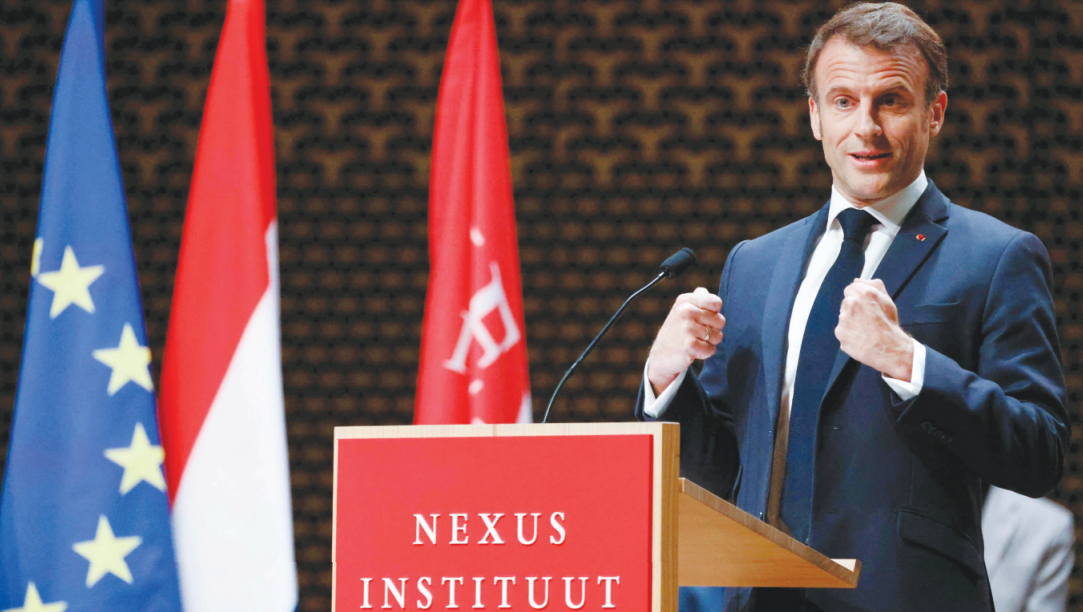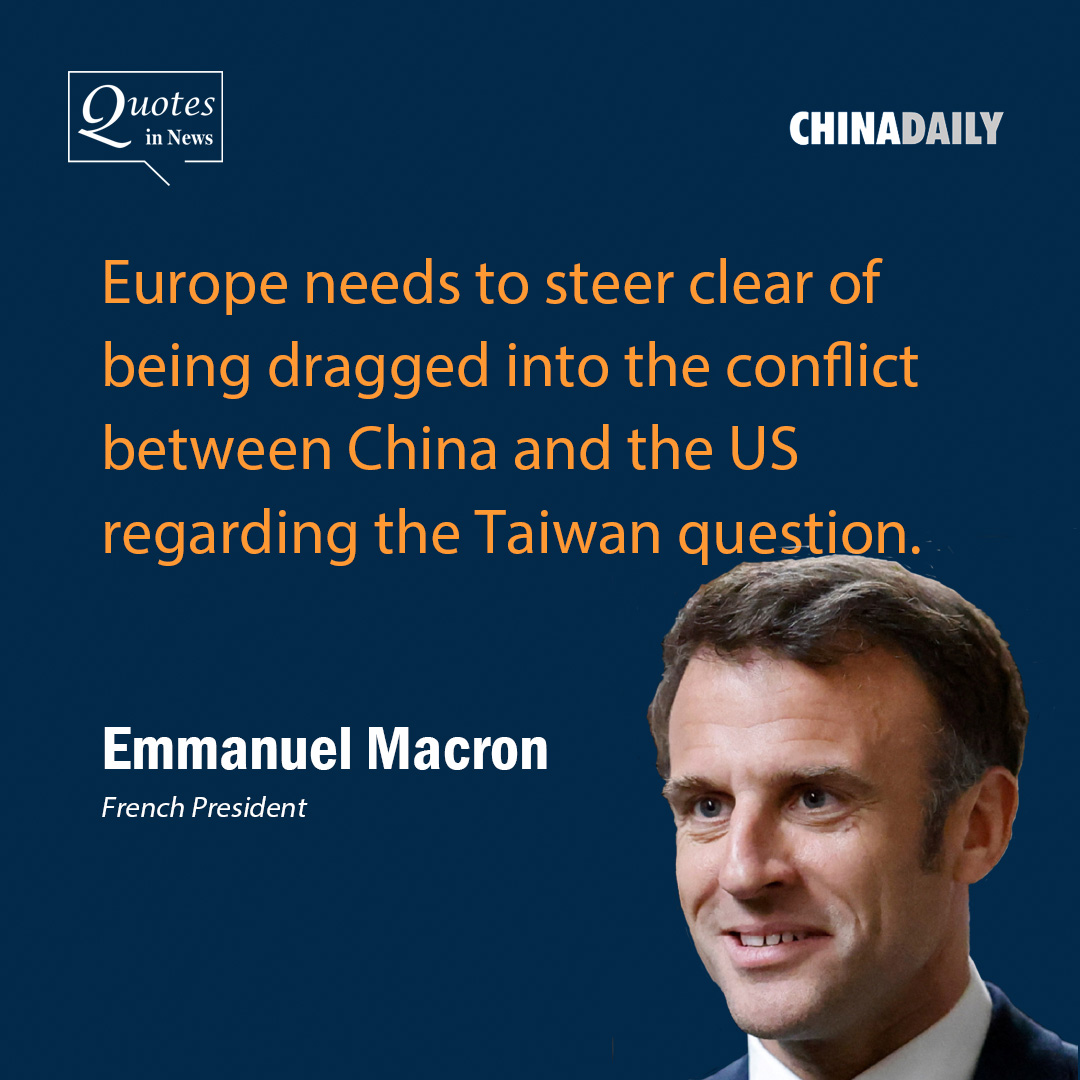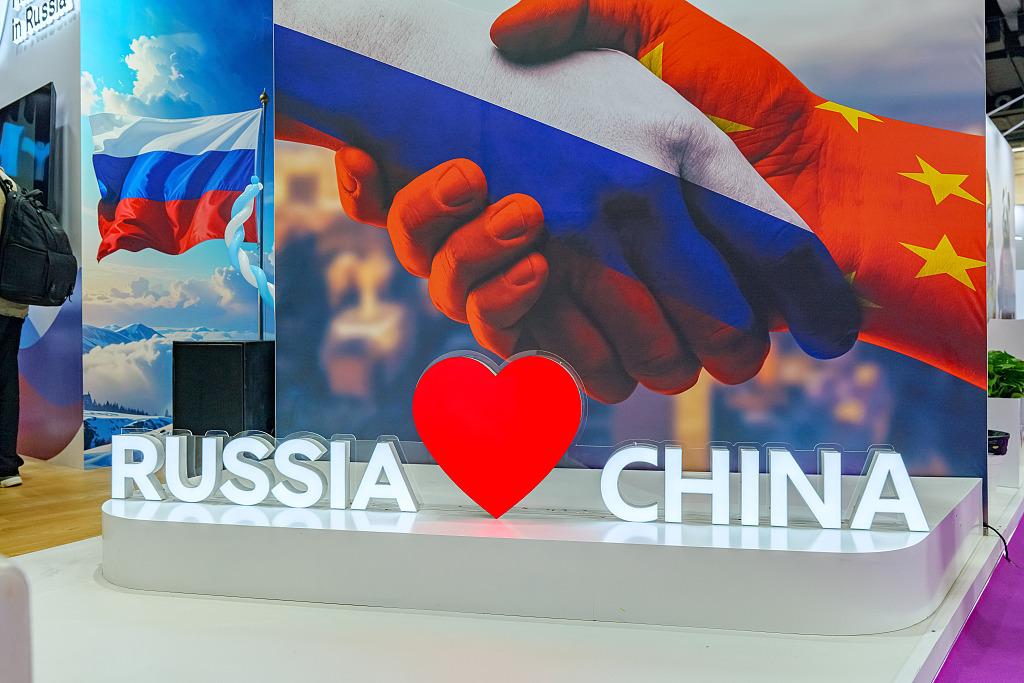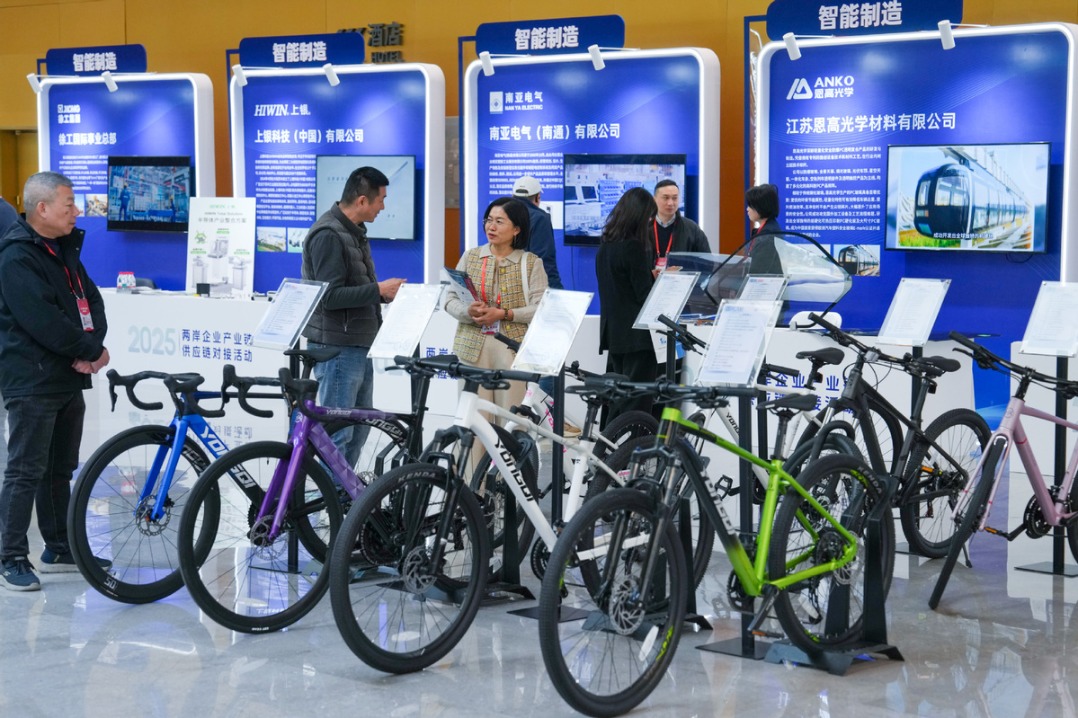Expert lauds Macron for autonomy stance
By YIFAN XU in Washington | chinadaily.com.cn | Updated: 2023-04-17 22:40

It is not surprising that French President Emmanuel Macron, or any other Western European leader, would say that European countries should not be American "followers", an expert in the United States said.
"The fact of the matter is the Europeans are not major security players in the 'Indo-Pacific' or the Asia-Pacific and in the Taiwan Strait," said Sourabh Gupta, a senior fellow at the Institute for China-America Studies in Washington, DC. "They are very marginal players in the Asia-Pacific security architecture."
Macron said in an interview on April 7, while returning from his state visit to China, that Europe needs to decrease its reliance on the US and steer clear of being dragged into the conflict between China and the US regarding the Taiwan question.
Macron emphasized his vision of "strategic autonomy" for Europe, with France presumably highlighting that Europe's "great risk" is becoming entangled in crises that are not its own, hindering its ability to establish strategic autonomy.
Macron "was speaking primarily on Taiwan. He has spoken, and the Europeans have spoken with regard to strategic autonomy in a broader context also," Gupta said.

"Macron was just stating the obvious, that France and Europe need to have an independent position on Taiwan, particularly if there is a conflict, and that France and Europe should not be adding to the tensions or fanning the flames of tensions."
Gupta added that he was shocked by the reactions of some US and other Western media. "It's surprising how everybody thinks that Western Europe has become a camp follower of the US with regard to China, on a Taiwan Strait crisis particularly, which is not the case and has not been the case," he said.
In his view, France stands out as unique because it is willing to take strong positions on strategic autonomy and has done so historically. But it is not the only "independent-minded" Western European country. They "need to have an independent position in this regard and try to be on the side of peace and diplomacy", Gupta said.
"The other Western European countries have very roughly similar positions," he added. "They don't want to antagonize the US, but that doesn't mean they are camp followers of the US.
"And they would much prefer that Europe has a position that is somewhat dissociated from the American position vis-a-vis China, because America is framing every issue vis-a-vis China in zero-sum terms," Gupta said.
By dealing with China relations in zero-sum terms, the US ends up forcing European countries to take sides, he said.
For Europeans, who have been able to create a very integrated and interdependent community of states over the past 50 years, recourse to violent means is something in the conduct of diplomacy that they frown upon, Gupta said.
"And to the extent that the US positions on many of these issues are much more bellicose, much more warlike, much more dependent on decoupling rather than coupling — it creates a dilemma for Europe."
He said Europeans are seeing a huge gap opening between them and the US regarding environment, the digital realm, trade and economics, and on flashpoint issues on which their positions are very different.
"They (European countries) don't want to get locked into US positions and be part of a larger Western camp and be taken for granted, especially when they are a $15 trillion economic actor and have power and can use the influence that comes from that power," Gupta said. "And I think this is the main driver for strategic autonomy or at least a certain strategic difference in approach from how the US approaches many of these issues."
Elbridge Colby, who was a senior Pentagon official in the administration of former US president Donald Trump, said: "The Europeans are pretty openly sending the signal that they're not willing to wage economic warfare against China. I think the (US) administration thinks Europeans would have our back in the event of a conflict, but that won't happen."
Tara Varma, a visiting fellow at the Brookings Institution in Washington, DC, said, "There's a sense there needs to be a clear European position on China that goes beyond the transatlantic relationship and exists on its own merits."
























